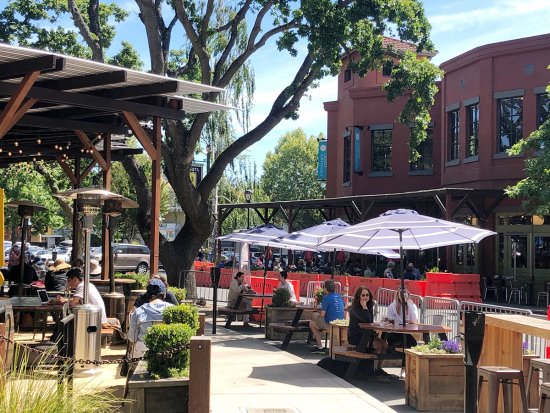
| ||||||
A ruling issued by Treasury that goes into effect April 1 will allow Lafayette and other cites reporting less than $10 million in revenue loss to spend ARPA funds on economic recovery measures but also to apply the funds to general government services. The subcommittee's first recommendation was to take advantage of the increased flexibility and discretionary use of ARPA's funds and on April 1 to immediately transfer $500,000 from the unallocated ARPA funds to the General Fund. The action would "backfill" revenue expenditures made by the city for the Park Theater appropriation.
Myers then prioritized in his presentation two additional recommendations: immediately reallocating $350,000 from preciously allocated ARPA funds to General Fund Revenue Recovery and on April 1 making payment in that amount to the Lafayette Chamber of Commerce for actions to assist in the recovery efforts for Lafayette's small business sector.
Other items included in the report included allocating $56,500 to Lafayette Partners In Education to make more mental health services available to Lafayette students who attend public high schools in the Acalanes Union High School District that are outside the Lafayette city limits. Another action, framed by Myers as a "transfer," would shift $100,000 from ARPA funds allocated for Business District marketing back to the General Fund. The funds would be used to hire an outside consultant to develop a comprehensive business marketing website to spur economic growth and recovery of the local business community.
A fourth recommendation suggested suspending the city's Business Assistant Program (BAP) due to the low volume of calls now that most of the state and federal funds have been dispersed. Myers said the city would remain in contact with Townsend Public Affairs, the company engaged to support local businesses, while it wraps up its work with local businesses and until such time as new funding becomes available. The subcommittee recommended that $22,500 of ARPA money that had been designated for BAP (if Townsend's oversight was to continue beyond March) be transferred to the "undesignated" category.
A final item requiring no money transfers or reallocations, but one that must receive formal approvals from the council to be fully enacted, was to initiate a one-year pilot program that extends current pandemic-related arrangements offered to downtown businesses. Under the existing agreement, the city allows restaurants to use on-street parking, private parking lots, and sidewalks for outdoor dining and retail sales as long as there is adequate space for pedestrian traffic. Additionally, sign and parking ordinances would continue to allow A-frames, banners, and the use of private lots for outdoor activities. The subcommittee recommended these policies be extended until March 31, 2023.
Asked about moving ARPA funds to the General Fund and the bookkeeping responsibilities that would then be taken on by the city (instead of by ARPA), Myers said reporting on how the funds are used would have to be done regardless and the greater flexibility offered by the shift of money to the General Fund was worthwhile. Dawson emphasized that having the allocations within the General Fund would also streamline the process for sub-recipients to which funds are given when they are reporting back to the city.
In public comments, Lafayette resident Grace Dixon describe the city's approach to the distribution of funds as "humble and out-of-the-box," but encouraged the council to "take a hard look at the past and present history with parks." She said downtown families had been without a play park for years and suggested ARPA funds might seed small, walkable parks and recapture public land access for Lafayette residents. Other comments supported funding accessible parks and public paths that would make the city more welcoming and suggestions for improved signage for restaurants and other businesses that do not have frontage on the city's primary downtown streets.
Ending his presentation on a positive note, Myers said the gift card program launched last week that supports local businesses has been well-received and to date has used just slightly more than $9,000 of the total $30,000 allocation (see related story, Page A9).
The council unanimously approved the subcommittee's five recommended allocations of the ARPA funds.
Reach the reporter at:
